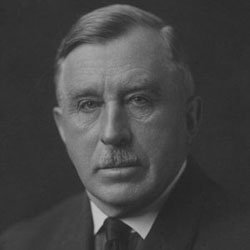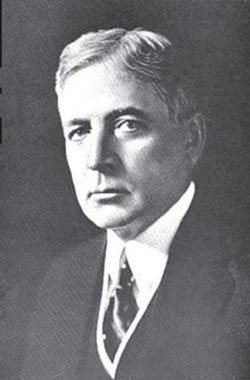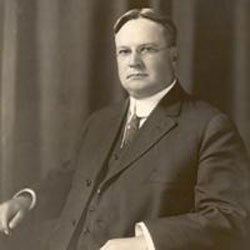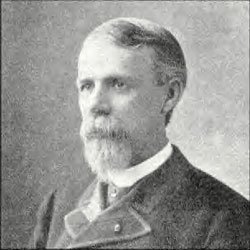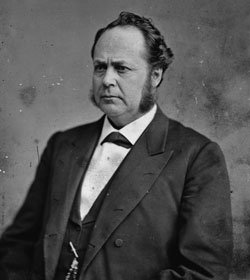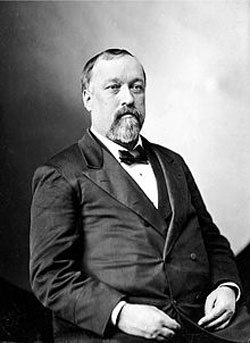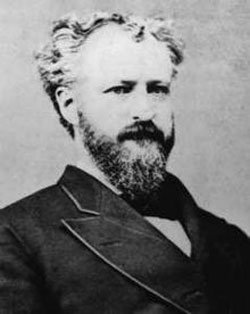Front-Runners Don’t Always Become the Nominee
GOP Conventions, History, Republican Party

Donald Trump has been vociferously complaining that delegate contests he doesn’t win are undemocratic and unfair, and demanding that the GOP Convention rules be changed to award the nomination to him, if he should be in possession of a plurality of votes on the first ballot. And, as usual, you can find a lot of the dimmer commentators, particularly on television, succumbing to his arguments.
The truth of the matter is that the nomination process was never intended or designed to function as a uniform and monolithic expression of pure and direct democracy.
The contest for the nomination was obviously never meant to be decided entirely and consistently by voting in primaries. Nor was the nomination ever intended necessarily to be decided prior to the convention itself. In recent years, the impact of coverage of the primary contests by the national media has added much greater emphasis to primary voting than was the case in earlier periods, and has encouraged the snowballing of a frontrunner’s success, but 2016 is proving to be an unusual cycle featuring a minority populist groundswell of support for one candidate, who –like some others in the past– is widely unpopular and completely unacceptable to a large portion of the Party.
The Nominating Convention is not simply a rubber stamp process which counts up the results of primary voting. Political parties are private organizations operating on the basis of their own systems of rules, whose rules and processes commonly differ over 50 states. Different states choose their delegates at different times and different states appoint delegates by different processes. Some delegates are bound by the rules to vote (on at least the first ballot) for a particular candidate. Others are unbound.
The essence of the situation is that convention will be composed of delegates representing their state parties, and not by robots mechanically operating in accordance with a direct democracy.
If the nominating process were a pure democracy, one would suppose that, instead of our current system, there would be held a nation-wide primary balloting all on the same day, and no convention would be necessary.
But, actually, the nomination contest is intended to function as a complex process, incorporating local and regional customs, preferences, and eccentricities, and going on over an extended interval of time intentionally in order to expose potential candidates to a diverse geographical collection of constituencies and interests, to test their abilities and personalities, and to expose their records and personal histories to intense scrutiny at length.
The fact that, in recent decades, the American nominating system has grown more predictable, more primary-based, and less reliant on delegate contests at the convention itself does not mean that, in this unusual year featuring a highly-unusual front-runner candidate of controversial character and carrying dubious credentials, we may not see a return to a more old-fashioned convention-based decision-making process.
Donald Trump won’t like it if he loses despite entering the convention with the largest number of first ballot votes, but if that happens to Trump, he won’t be the first GOP front-runner to fall behind in the course of convention balloting. It has not happened recently, not since 1940, but Donald Trump would actually be the 23rd of 22 men who had exactly the same experience (two of them, John Sherman and James G. Blaine, twice).
1940:
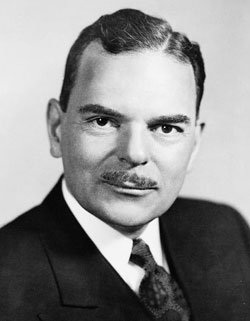
Thomas Dewey had 36% of the delegate votes on the first ballot of the Republican Convention of 1940, but Wendell Willkie (who started with only 10.5% of the votes) won the nomination on the 6th ballot. Wilkie, of course, lost to Franklin D. Roosevelt who was breaking tradition by seeking a third term.
————————————–
1920:
Five rival candidates had more delegates on the first ballot in 1920, but Warren G. Harding cinched the nomination on the 10th ballot.
————————————–
1888:
Benjamin Harrison, who was initially not among the top four candidates in votes, won the nomination after 8 ballots. He went on to defeat Grover Cleveland in the general election.
————————————–
1880:
Grant had the most votes on the first ballot, and all these other gentlemen had some, while James Garfield had zero, but after 36 ballots Garfield got the needed majority. Garfield was elected president, but was assassinated a few months after taking office.
————————————–
1876:
Dark horse Rutherford Hayes of Ohio rose from an approximate tie for 5th place to win on the 6th ballot. Hayes lost the popular vote to Samuel Tilden. 20 electoral college votes were disputed, but a special commission (containing a Republican majority) awarded them, and the election to Hayes. Democrats agreed to stop resisting his inauguration after Hayes promised to end Reconstruction.
————————————–
1860:
Abraham Lincoln’s floor managers successfully pulled off a deal with the Pennsylvania delegation and got him enough votes by the third ballot to take the nomination away from William Seward.
————————————–
1856:
The American Party actually nominated Banks, but it was understood that he would withdraw in favor of John C. Frémont who expected to be nominated by the newly founded Republican Party. Banks did withdraw and Frémont became the nominee of the merged parties on the 11th ballot. Frémont then went on to lose to the Democrat James Buchanan.
